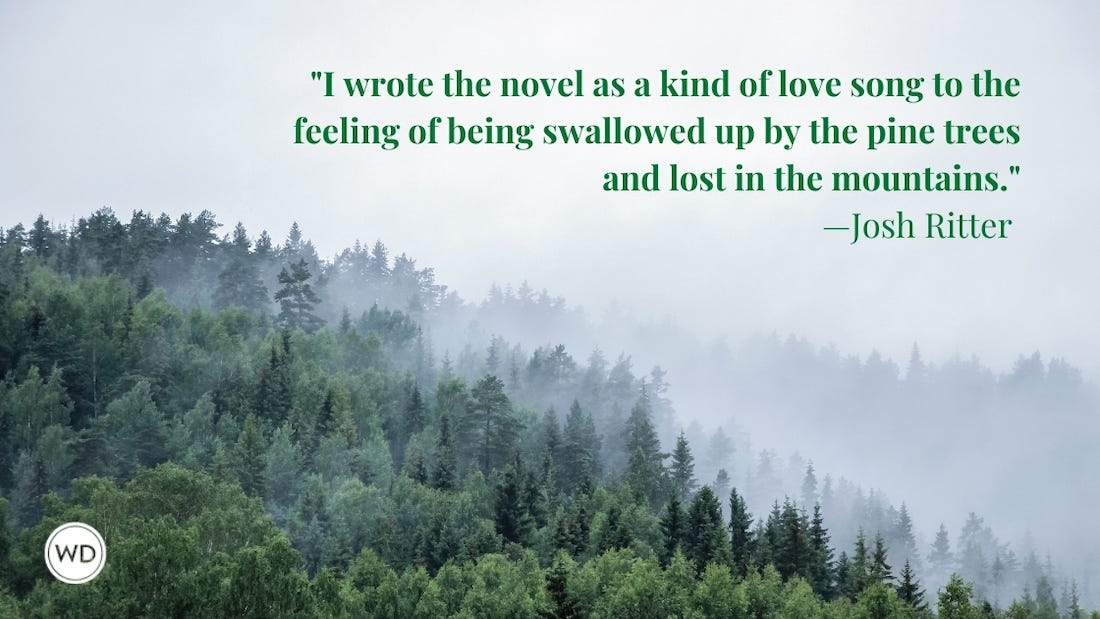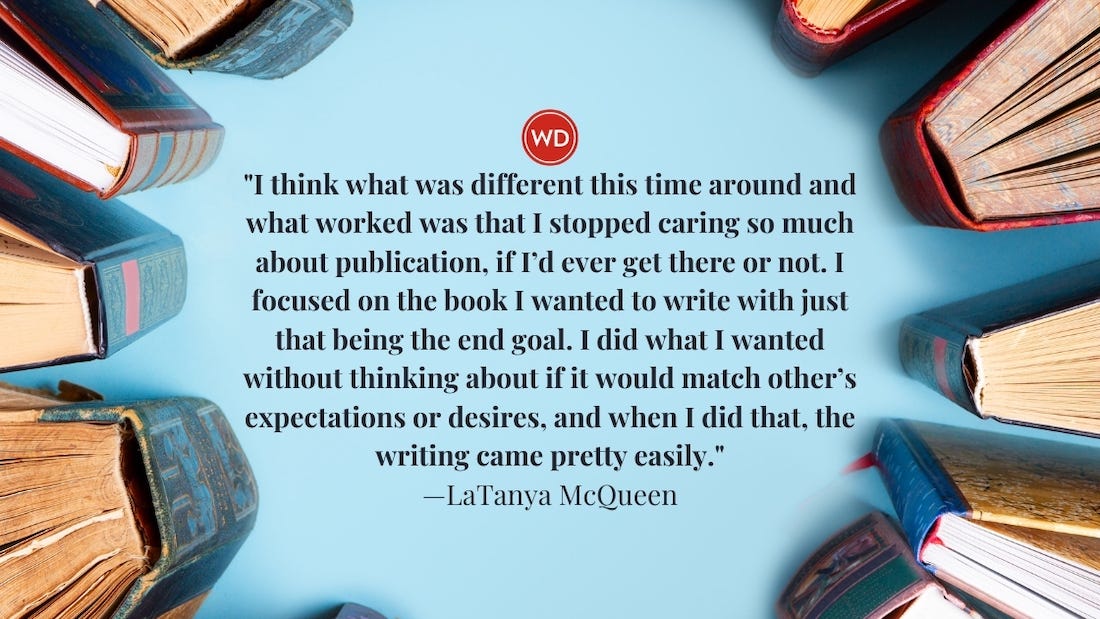On the Edge: Fantastic Fiction
Despite the longevity of the fantastic in narrative form, there’s long been a stigma against blending it with literary fiction. But recently, readers have been eager to read contemporary fantastic literatureand publishers are taking note.
A PROFESSOR PURSUES the real Dracula, a man time-travels due to a genetic anomaly and rival magicians battle for dominance. Sounds like the stuff of fantasy, doesn't it? Actually, those premises come from three popular literary novels by Elizabeth Kostova, Audrey Niffenegger and Susanna Clarke, respectively. Recently, "fantastic" fiction has marched unabashedly through the well-guarded gates of literary fiction and appears to be here to stay.
"Anybody being honest about the current market will acknowledge that fiction that's not entirely of this world is red-hot," says Simon Lipskar, an agent at Writer's House literary agency. "From The Lovely Bones to The Historian, many of the breakout books of recent years have been fantasy."
Lipskar speaks from experience. He represents debut writer Ron Currie Jr. and his collection of linked stories, God Is Dead, which employs fantastic elements. The collection made an enormous impression on editors.
"The reaction in the industry was overwhelming," Lipskar says. "I had multiple offers and was anticipating an auction, but Molly Stern at Viking came to me with a stunning preemptive offer. In fact, one editor—and remember, this all happened a year ago—told me recently that she's still brokenhearted over losing God Is Dead."
But fantastic fiction hasn't always been warmly included in the world of literary fiction. "It's only in the past few years that the literary establishment has come to be more accepting toward fantastical writing," says James Minz, an editor at Del Rey. "And that reluctance is hardly new. I do find it ironic that the contemporary literary establishment seems to have such little regard for fantasy. After all, narrative story began with fantasy, from Gilgamesh to the Iliad and the Odyssey."
Lipskar says the publishing industry "ghettoized" the fantastic, thus pushing it out of the literary running. "For decades, fantasy was sold as a niche genre—swords and sorcery, read by acned teenaged boys—and the packaging signaled nonmainstream status," he says. "Fantasy developed a stigma that made publishers wary of fantastic fiction. The success of Susanna Clarke's Jonathan Strange & Mr. Norrell was proof positive that the reading public doesn't have the same hang-ups that publishers caught in an outdated paradigm do."
Many credit Harry Potter as the originator of the fantastic literary trend, which has been helped by the success of the Lord of the Rings movies. But others feel that the trend started earlier.
"There are a lot of recent examples of works of contemporary fiction with fantastical elements that have enjoyed popular success and critical respect," says Tina Pohlman, an editor for Harcourt. "Though I'm not sure it's really a trend, if I had to, I might trace the beginning to a decade ago with writers like Jonathan Lethem, Judy Budnitz, George Saunders and others."
A contributor to this crossover genre herself, author Aimee Bender believes the trend may also be a backlash. "I think the literary world goes through its own shifts and phases, and this change may be a response to the realist Raymond Carver-phase of the 1980s and early 1990s," Bender says. "Carver is a wonder, but he became so unbelievably huge in the MFA programs, and I wonder if the move away from realism is, in some small part, a pendulum swing away from that. Donald Barthelme rose up as Carver's bizarre brother, providing a different model."
ART DEFLECTS LIFE
Few would contest that there's a trend of the fantastic in literary fiction. The harder question to answer is what's behind its popularity.
"In terms of the big picture, let's face it, the world today is looking pretty grim: the war on terror and its many pitfalls and problems; the middle class feeling the pinch of shrinking income and increased expenses—this often leads to readers turning to literature that's escapist in nature," Minz says. "Fantastical elements allow a writer to offer the reader tools to cope with the uncomfortable or even horrific element, whether you're talking about Edgar Allan Poe's 'The Masque of the Red Death' or Kelly Link's 'The Specialist's Hat.' "
Currie turns to the real world when crafting his alternate worlds in writing. In God Is Dead, after assuming the form of a Dinka woman in Darfur, God is killed, and the world reels in response. "I draw a good deal of my inspiration from the anger I experience stepping out into the world every day," he says. "I think I do have a preference for alternate versions of reality."
Pohlman suggests that fantasy connects people to their own dream lives. "I think readers find all sorts of things in these fantastical elements that speak to them: escape, metaphor, perhaps some kind of Jungian archetypal connection. Everyone has a dream life and a fantasy life, so you could argue that on some level, a reader experiences a very real connection to fantastical elements in stories."
Lipskar agrees. "There's nothing sadder to me than the idea that fantasy is for children and that adult fiction should address only the realities of our tangible world," he says. "It's one of those classically foolish bits of Puritanism that infect our culture—that anything pleasurable can't be as serious as that which is not, that our fictive world must match the real world's limitations and ordinariness."
DRAWING THE LINE
Trying to draw the line between works that are considered strictly literary and those considered strictly fantasy can be like splitting hairs. Quality language and characterizations are crucial elements, but that's where the common opinions end.
Pohlman, who bought the paperback rights to Link's book Magic for Beginners, takes a stab at a definition. "I guess in general terms you could say there are genres and genre conventions. When you have a wonderful writer who's writing a piece of fiction that doesn't conform to those conventions, and in which he or she incorporates genre elements in a stylistically creative way, maybe that's 'fantastic' literary fiction."
Anika Streitfeld, who bought Niffenegger's debut novel The Time Traveler's Wife while she was an editor at MacAdam/Cage (she's now at Ballantine) admits, "I hesitated about the genre—could someone really time-travel in a literary novel? But I soon realized that Henry's being a time-traveler doesn't make this novel science fiction. I think it has something to do with how many elements are being manipulated. In the novel, there's one fantastic element to accept, and everything else is grounded in the rules of literary fiction and reality."
Ultimately, in many cases, the defining line comes down to marketability and what will sell the most books.
"Typically, if you consider a work of fantasy to be more literary, then you're probably dealing much more with metaphor or allegory," Minz says. "For pure escapist fare, metaphor becomes less significant than pure page-turning entertainment. On a practical level, I don't think there's a line, just a blurry gray area between the two categories. Now, on a case-by-case basis, as an editor I have to make a decision on what's the best way to publish a given work."
Minz gives the example of Vellum by Hal Duncan, the first novel he acquired for Del Rey, which they opted to publish as a genre work. "We've had a lot of success publishing genre fiction with strong literary style, including authors like China Miéville and Richard Morgan. That being said, Macmillan UK chose to publish Vellum as a Macmillan title for the mainstream audience, rather than under Tor UK, their genre imprint. Who made the right choice? Hopefully, we both did."
FOR THE JOY OF IT
The writers of fantastic fiction have fewer concerns than the publishers about the genre, because most of them simply enjoy writing it.
"I find it freeing to write because I can get to truer feelings when I obscure the reality of the scene," says Bender, whose latest collection of stories is Willful Creatures. "Somehow, by shifting away from actual fac ts and real life, I can be more honest. I wouldn't have been able to talk about power dynamics as directly between two men, or not so well, but it was easier to make one big and one little—as in Lilliputian little—and just play out what happened from there. There's a natural logic that occurs when you shift the rules of the world. Then, my job is to explore how this rule shift changes things."
Bender also enjoys reading fantastical fiction for a similar reason. "Newness is exciting, and in that fun there's a metaphor that, if it's working, will resonate in a surprising way. I like reading fantastical work because my feelings sneak up on me. I don't expect to be moved."
Currie wrote realist fiction for much of his writing career. "I'm relatively new to surreal or fantastic fiction," he says. "I found the constraints of realism constraining. But I didn't realize I was being squeezed because I hadn't tried anything else. Then I started fooling around with format, and it was a revelation. Soon after, I began introducing fantastic elements, and it opened up a whole new creative arsenal. I want readers, and I know from personal experience that to convince people to turn off the television, you've got to write something that demands attention. Alternate versions of reality, when done well, have a way of doing that."
Link agrees. "Writing fantastic fiction opens up more possibilities, certainly. I think it captures, or reflects, something of the strangeness of real life. When you write, you draw on the things that you first loved to read. Writers my age grew up reading fairy tales and J.R.R. Tolkien and Ursula K. Le Guin. You want to give your readers the same kind of pleasure and exhilaration—that sense of wonder. I write stories about zombies. I'm happiest with the labels that don't quite fit."
Whether it's to escape the mundane or harsh taste of reality that draws readers to fantastic fiction, or just a pure love of a solid, well-written tale, this crossover genre has the power to be the most enduring of them all.
"Any publisher who's avoiding mainstream or literary fiction with fantastic elements," Lipskar says, "is ignoring one of the most obvious phenomena in recent publishing history.








